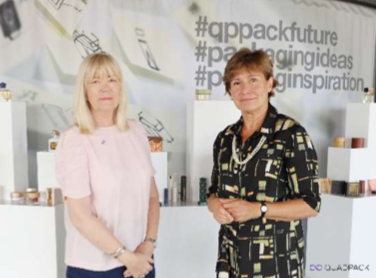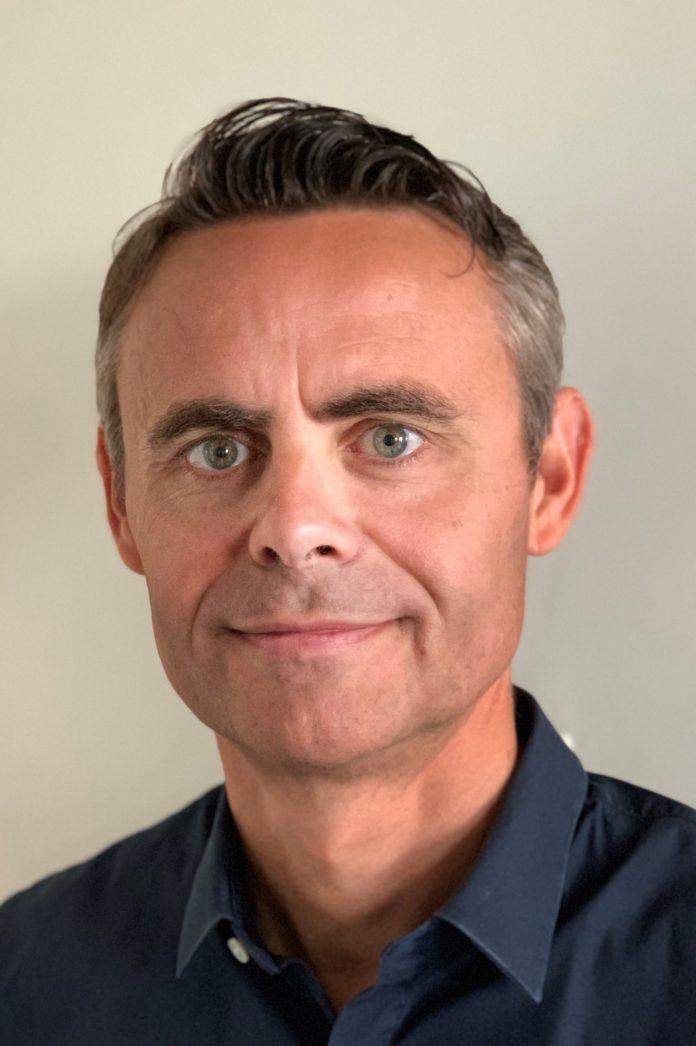The penultimate episode in our series, and the innovation continues! First, you'll hear from Solabia, part of the upcycling trend linked to coffee, then Microfactory, which presents new equipment to speed up foundation wear tests, for example. Scentys will then talk about its VOC-free perfume diffuser. Finally, Plant Advanced Technology will talk about plants and their roots...
Quadpack's Governance Committee strengthens
The introduction of independent members to the Governance Committee and the creation of new committees contribute to the company's diversity, transparency and accountability.
Quadpack's Governance Committee has been strengthened with the appointment of its first independent members. Three new committees have also been created, focusing on sustainability, audit and risk, and remuneration and appointments. These changes were ratified at the Annual General Meeting of Shareholders, held on July 13, 2021 at Quadpack's Barcelona headquarters. Taken together, these measures boost the key principles of good management, including participation, transparency, fairness and inclusiveness, effectiveness and efficiency, and accountability.
Institutional investor expert Chrysoula Zervoudakis and diversity specialist Cheryl Hall have joined Quadpack's Board of Directors as independent members. Ms Zervoudakis brings financial experience with a strong focus on strategic development. Ms Hall is a certified climate change coach and professional mentor to international entrepreneurs at the Royal Academy of Engineers Fellowship, in connection with the UN's 17 Sustainable Development Goals.
As Quadpack strengthens the organization of its goal-oriented oversight and management culture, the appointments of Chrysoula Zervoudakis and Cheryl Hall enrich the diversity of the Board of Directors in a number of ways. Tim Eaves, Quadpack's CEO, Chairman and President of the Board, comments: "Chrysoula and Cheryl bring unique experience, fresh ideas and objectivity that will be invaluable to our growth. Their passion and enthusiasm for creating a sustainable business will help Quadpack make an even more positive impact on our planet and our society."
The three new committees have been set up to reinforce sustainable practices, ethical processes, accountability and transparency. The Sustainability Committee, headed by Cheryl Hall, ensures that the company's performance is built on a foundation of sustainable growth. The Audit and Risk Committee, headed by Chrysoula Zervoudakis, monitors the integrity of the financial reporting system and internal controls. The Remuneration and Appointments Committee, headed by Steven Lewis, Board Vice President of Quadpack, guides the Board on policies relating to the appointment and remuneration of directors and senior managers with strategic responsibilities.
[podcast] Cosmetic 360: innovation on the agenda 3/5
Third episode in this series dedicated to innovation at Cosmetic 360. You'll hear Rossow talk about cellulose to ensure the expected sensoriality. A large part is devoted to research with the CNRS and the presentation of the show's Tech Corner animation: the touchy finger, which makes touch measurement quantifiable. Finally, Lipoid will be talking about original ingredients...
Study: the best and worst cities for the skin
Founded in 2021 and based in Zurich, Switzerland, Covalo connects cosmetic brands with ingredient and packaging manufacturers, formulation and manufacturing service providers and various laboratories through a comprehensive search engine.
The company also provides ingredient suppliers with a comprehensive real-time industrial data platform to effectively market their products. Covalo was founded in 2021 and is based in Zurich, Switzerland.
Covalo has published a study assessing the impact of nine environmental factors on skin health, ranking the best and worst cities for the skin.
French cities are a long way from the top of the ranking. Paris came 26th: high humidity, poor air quality and pollution in particular cost it points. The second French city surveyed was Marseille, in 44th position overall. High stress levels due to traffic jams, poor air quality and the average annual UV index can damage your skin in the French port city.
Among our European neighbors, Munich, Madrid, Berlin and Milan score well, while London comes just ahead of Paris and Brussels ahead of Marseille. The three best large cities in the world for skin are Phoenix, Oslo and Montreal, just ahead of Munich.
At the bottom of the rankings, Mumbai is the worst city for the skin, notably because of traffic jams that stress the skin, and the combination of highly polluted air and high humidity that leads to a general decline in the skin's protective functions.
Some notable results:
- Brisbane, Phoenix and Canton have the highest average temperatures, with ideal skin temperatures around 22°C.
- Northern European cities such as Reykjavik, Helsinki, Oslo and Stockholm top the ranking thanks to their low UV indices.
- Belfast is the best city in the ranking in terms of the number of sunny days per year, since the greater the number of sunny days, the greater the risk of skin disease.
- Edinburgh scores top marks for air pollution: the Scottish city has the lowest levels of airborne particles, which have harmful effects on the skin.
- Montreal has the lowest annual wind speed, which means that the wind here dries out the skin less than in all the other cities in the ranking.
- Phoenix, New Delhi and Istanbul have the perfect humidity, with atmospheric water vapor concentrations between 30% and 50%.
- On the contrary, Panama, Lima and Singapore have the worst humidity levels, increasing skin sensitivity and causing acne.
- Phoenix and Montreal score highest in the Air category, which means that in these two North American cities, air quality is conducive to good skin health.
- In terms of daily cigarette consumption per smoker, causing acne and skin-damaging stress, Valletta comes first, closely followed by Riyadh and Taipei.
- Phoenix has the fewest hours spent in rush-hour traffic per driver, reducing the negative impact of stress on skin health.
- Germany has the lowest average number of hours worked per week per person, which minimizes the effects of work-related stress on the skin.
The aim of this study is to find out which are the best and worst cities for the skin, by analyzing 80 of the world's most populous cities. The factors taken into account for this study are related to air quality, solar radiation and stress, and all have an impact on the skin. These include average annual temperatures, sunny days, average UV index, air quality, average wind speed, average air humidity, hours worked per person, time spent in traffic jams and average daily cigarette consumption.
[podcast] Cosmetic 360: innovation on the agenda 2/5
For the second episode of our 5-part series, we kick off our exploration of innovation with Le Rouge Français, pioneers of plant-based hair color. Then we open up with Oxiproteomics and Kamax Innovative System. We'll end on a gentle note with Lao's natural, anti-pollution shampoos.
Arcade Beauty appoints Carl Allain as President and CEO
Arcade Beauty has announced the appointment of Carl Allain as president and CEO. He previously served as senior vice president and general manager of Europe since 2016, and succeeds Peter Lennox, president and CEO since 2016. Peter Lennox remains on the Arcade Beauty board of directors as a strategic advisor.
Carl Allain joined Arcade Beauty as Operations Director in 2011 and was promoted to Managing Director Europe in 2016. His knowledge of Arcade Beauty, global experience in managing international businesses and strong operational skills allow him to step into his new role and lead Arcade Beauty into its next phase of growth. He will continue to develop the strategy based on Arcade Beauty's three pillars of sampling, sales products and digital, while supporting the company's commitment to sustainability.
"Since 2016, I have had the privilege of leading our European subsidiary, I am very proud of my team and all the employees in Europe, what we have achieved together and I would like to thank them for their support and success. I am extremely honored to now lead the entire group. Arcade Beauty has a strong foundation of teamwork, innovation and trusted relationships with its customers. I look forward to meeting with our customers to support their future growth," said Carl Allain.
Peter Lennox will remain on the Arcade Beauty board to provide strategic support to Oaktree Capital and Carl Allain. Since joining Arcade Beauty in 2016, Peter Lennox has led the company's transformation, including guiding the organization through the significant challenges posed by the Covid-19 pandemic. During his tenure, he has successfully launched Arcade Beauty's sales and digital product businesses, deployed operational excellence in its manufacturing facilities, and fostered team cohesion.
"The past five years have been particularly rewarding personally and professionally. I remain confident that Arcade Beauty's three-pillar strategy of sampling, sales and digital, combined with our commitment to sustainability, will continue to be at the heart of our business. I am confident that Carl will continue to drive the Arcade Beauty business forward and I wish him and all the employees the best," he said.
[podcast] Cosmetic 360: innovation on the agenda 1/5
Listen to our new podcast series dedicated to innovation encountered at the 2021 edition of Cosmetic 360.
Whether on our stand, in the aisles or at other exhibitors' booths, we've held out our microphone with a single question in mind: what innovative ideas do you have to offer the market?
Raw material suppliers, active ingredient specialists, formulators, equipment manufacturers, support functions and many others are all innovating for the well-being of the perfumery and cosmetics industry.
For this first episode, we met up with Greentech to talk about its active ingredients; with the Cosmetomics network and the Synchrotron Soleil to discuss cosmetics research; and with Franckie Bechereau, the show's director, to focus on ecological hedonism...
Cosmetic Awards 2021: innovation rewarded
On the occasion of the Cosmetic 360 trade show held on October 13 & 14 at the Carrousel du Louvre, the Cosmetic Awards 2021 were presented on October 13.
They aimed at rewarding the most beautiful innovations of the 2021 exhibitors presented in the following categories:
- Raw materials
- Tests & analysis
- Formulation & Contract Manufacturing
- Packaging
- Industrial equipment (new in 2021)
- Brand & distribution
- Special Jury Prize on ecological hedonism (theme of the 7th edition)
The 2021 winners in each category are:
- Award for formulation & contract manufacturing: Eurowipes, a company that develops an impregnated mask packaged in a 100 % recyclable paper bag made in France, a fully biodegradable finished product.
- Award of raw materials: Laboratoires Eriger, a French company developing a unique technology for the vectorization of highly concentrated products and unstable active molecules.
- Packaging Award: Eurovetrocap, an Italian company developing the first cosmetic dropper made from 24/410 monomaterials.
- Industrial equipment award: Seprosys, a French company developing a mobile unit that offers a process for the production of active ingredients from all raw materials.
- Brand award and distribution: Voysen, a French company that publishes a software program that provides access to a single database of consumer reviews and their analysis for over 50,000 products.
- Award tests and analyses: Kamax and Oxiproteomics, French companies setting up the "hair protection index", a unique 2-in-1 analysis that combines efficacy studies at the molecular and structural levels.
- Special Jury Prize "Ecological Hedonism": Innov&sens, partner of the Polymeris cluster, a French company working on a recyclable packaging made of 2D and 3D eco-designed fabric, made from ocean plastics, to awaken the senses.
After examining some 160 projects, the winners were selected by a jury composed of journalists from the professional press.
L'Oréal launches fragrance information platform
Faced with growing consumer demand for information on the composition of beauty products, L'Oréal is continuing its drive for transparency by launching a new, easily accessible platform dedicated to the fragrance ingredients in its portfolio, with an unprecedented level of information, so that consumers can make informed choices.
As the only player in the beauty industry to operate across all distribution channels and product categories, L'Oréal wanted to develop an information model that would work not only for its consumer products, but also for its luxury fragrance collection.
The development of this information platform began three years ago with the analysis of over 20,000 fragrance formulas. Each fragrance is a unique, highly complex composition created by an expert who combines the best of natural extracts and high-quality synthetic ingredients. Some fragrance compositions may include a large number of ingredients of both synthetic and natural origin. The challenge was therefore to offer the highest level of transparency while preserving the know-how and confidentiality associated with the uniqueness of each fragrance. To develop this information model, L'Oréal worked hand-in-hand with its suppliers, the four international leaders in fragrance creation: Firmenich, Givaudan, IFF & Mane.
This information platform is much more than just a list of ingredients. Built in conjunction with consumer studies, it also provides insight into the origins of ingredients, their olfactory properties and how they are combined to create the fragrance of products.
This initiative is a further step in the Group's commitment to transparency. It complements the "At the heart of our products" website, to be launched in 2019 and dedicated to deciphering ingredients, and the PIL (Product impact Labelling 2020) a display system for the environmental and social impact of products, as well as a campaign to raise awareness of its commitments to Green Sciences (2021).
"Our commitment to research of the highest scientific standards has enabled us to build a relationship of trust between L'Oréal and its consumers. Now, with this new fragrance platform, we are responding to their desire for information that is both accessible and more in-depth, says Barbara Lavernos, Executive Vice-President Research, Innovation and Technology at L'Oréal. Transparency is at the heart of the trust that consumers build with our brands, and we are proud to continue to meet their expectations by providing them with the information they need to make their purchasing decisions."
The platform will be rolled out in stages, starting in the United States with Atelier Cologne, Garnier and Yves Saint Laurent, which are already online. The Group will then gradually roll out the model across all its global markets and brands.
As a responsible leader in the beauty industry, L'Oréal would like to see this model extended to other players in the sector, both manufacturers and distributors, in order to bring even greater transparency to consumers.
Launch of the European platform Go4Cosmetics
Go4Cosmetics is a platform that aims to generate new interactions between European players in the cosmetics industry. Its official launch took place at the end of the perfumery and cosmetics industry summit held in Paris in October.
Strengthening the leadership of the European cosmetics industry
The cosmetics industry is a rapidly expanding sector on a global scale and represents a key commercial, scientific and social challenge for the European economy. According to Market Performance, the cosmetics market in Europe was estimated at 79.8 billion euros in 2019 with 1.8 million people employed and 30,000 scientists in the R&D sector. With the recognition of a large public adept of Made in France or the reputation of products made in Italy, the European industry must however rethink and modernize its industrial processes. This is particularly important in order to increase its presence in fast-growing foreign markets, such as Asia.
To enable the European cosmetics ecosystem to establish its position in this highly competitive market, the Centre-Val de Loire region and the Lombardy region are supporting the creation of a European cosmetics network, labeled in June 2021 by the European Commission, as part of the platform of intelligent specialization for industrial modernization (S3). This network named Go4Cosmetics will be implemented and coordinated by Cosmetic Valley, DEV'UP Centre-Val de Loire, REI - Reindustria Innovazione, Cosmetica Italia and Polo Della Cosmesi.
Five other territories have joined the dynamic: Catalonia (Spain), the Centre region (Portugal), the North-West (Romania), Olomouc (Czech Republic) and Sardinia (Italy).
This cooperation is a new strategic step for the ecosystem players already united in the European Global Cosmetics Cluster - Europe*. The Go4Cosmetics platform is based on taking into account the entire value chain present in Europe - from suppliers to consumers and research - to create new cooperations, both in terms of investments and innovation and experience sharing, while taking stock of the latest scientific research results.
It will also be a way to promote the interests of the cosmetics industry to European institutions and to highlight public policies related to the digital and ecological transition.
Three priorities have been identified to support cosmetics companies
Thus, Go4Cosmetics will promote the development of the entire cosmetics value chain through a trans-regional approach and the involvement of all relevant stakeholders.
The partnership will play a central role in identifying and linking complementary expertise to create new solutions and business models to strengthen the competitiveness of the cosmetics sector, stimulate its sustainable growth and accelerate the transition.
The partners have thus defined three priorities:
- Digital transition: by supporting industrial modernization projects to make the cosmetics industry stronger and more agile, in conjunction with other support mechanisms such as the EDIH (European Digital Innovation Hub) project, the European Digital Strategy or the Recovery Plan program.
- Ecological transition: by supporting initiatives related to the circular economy, waste management and the implementation of the objectives of the Green Pact for Europe and the Recovery Plan.
- Information for consumers and citizens: by promoting the assets of the regions and the attractiveness of the cosmetics industry, by informing consumers about the values and know-how of the sector while developing wellness tourism.
By capitalizing on the potential of the European cosmetics ecosystem, the Go4Cosmetics platform will facilitate and extend the capacity for investment in innovation, enable companies to optimize resources and make savings. Taking into account the environmental and digital transitions will allow all actors in the chain to gain competitiveness and establish sustainable growth.
Official launch at the Cosmetic 360 international trade show
The official launch of the Go4Cosmetics platform took place on Thursday, October 14, 2021, during the Summit of the perfumery and cosmetics industry, scheduled in parallel with the Cosmetic 360 trade show organized by Cosmetic Valley, at the Carrousel du Louvre in Paris. The device was presented to industry players during the roundtable "The European strategy for innovation and internationalization of companies" in which participated François Bonneau, President of the Region Centre-Val de Loire, DEV'UP Centre-Val de Loire and Vice President of Regions of France; Anne Besnier, VP for Higher Education, Research and Innovation of the Centre Val de Loire Region; Fabrizio Sala, Minister of Education, Higher Education, Research and Innovation of the Lombardy Region; Christophe Masson, CEO of Cosmetic Valley; Renato Ancorotti, President of Cosmetica Italia and Matteo Moretti, President of Polo Cosmesi.
On this occasion, the two lead regions formalized their coordination and collaboration by signing a memorandum of understanding. The organizing committee met the next day, Friday, October 15, to define the implementation modalities and the action plan of this new structure.
*Coordinated by Cosmetic Valley, Global Cosmetics Cluster - Europe (GCC.EU) brings together six European cosmetics clusters and is supported by the Cosme program. This European Commission program finances actions directly led by the clusters to support the internationalization of their SMEs and facilitate their access to new markets.
The acceleration program dedicated to cosmetic SMEs is spread over 24 months until the end of August 2022. It includes four components: market knowledge; skills development (training on internationalization and awareness, coaching ...); business development and partnership (market place, benchmarking missions and BtoB events); financing opportunities.















